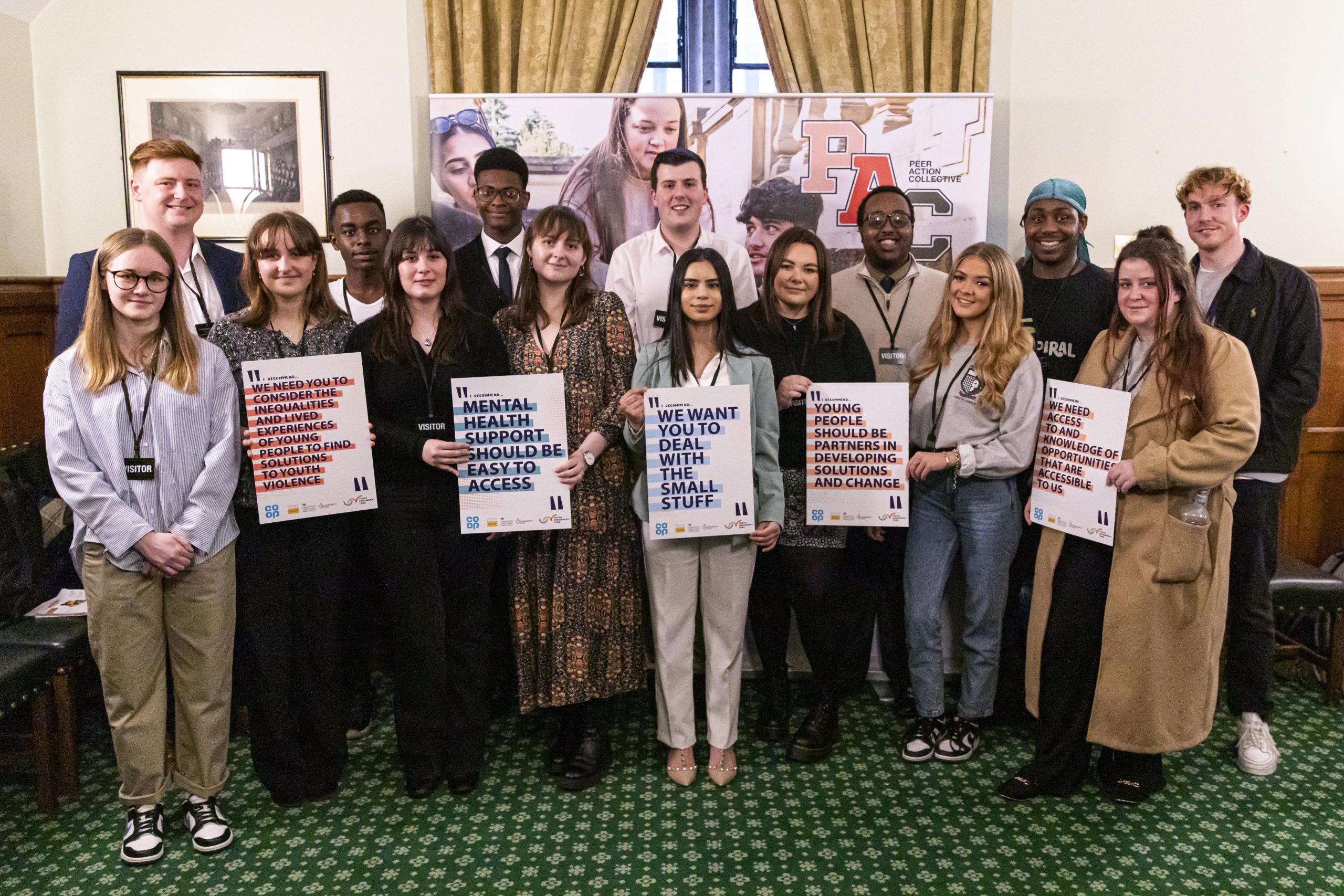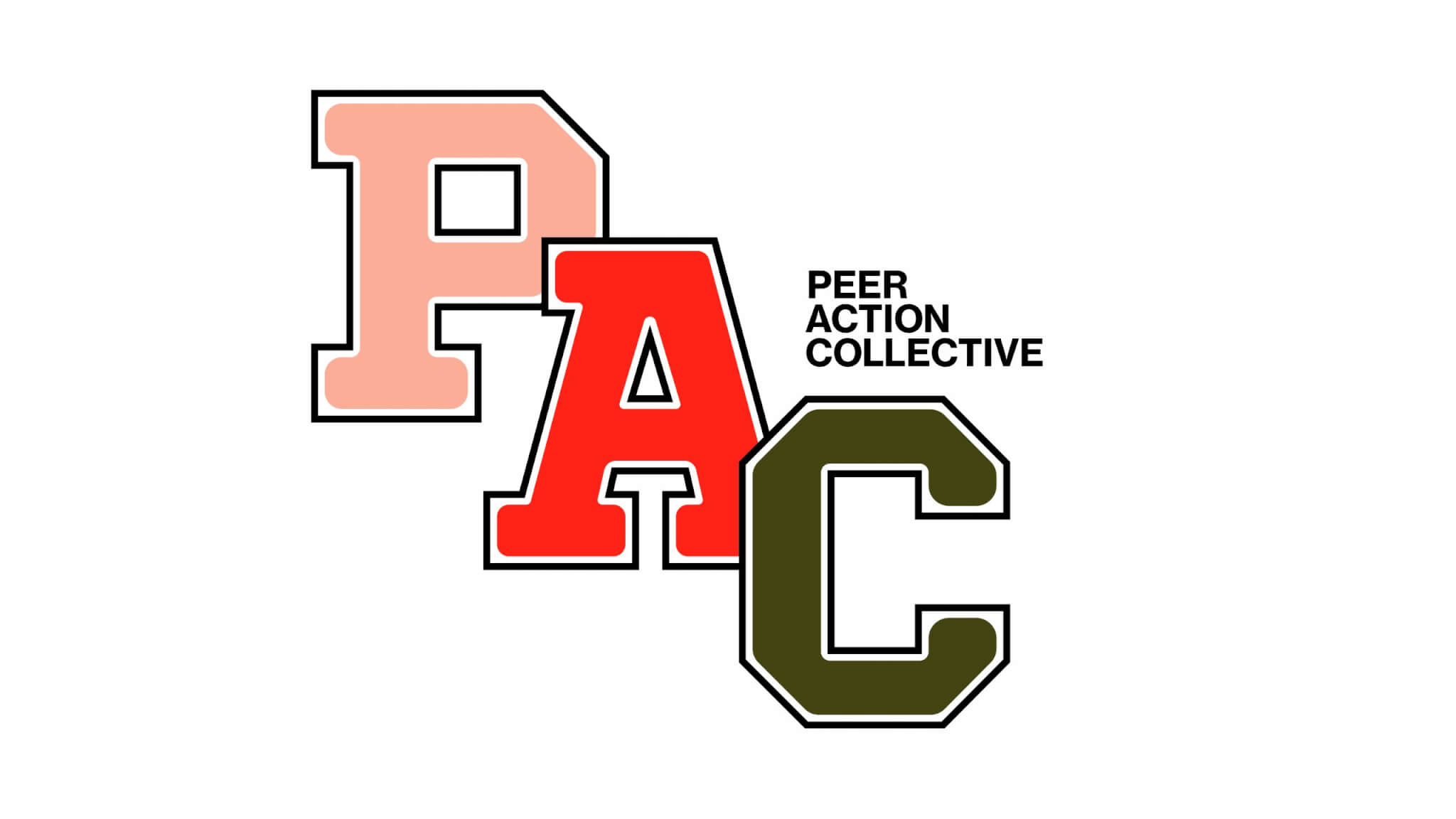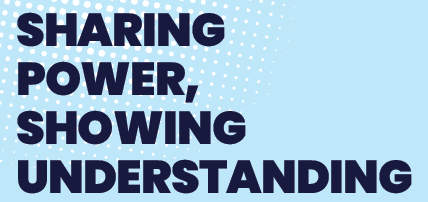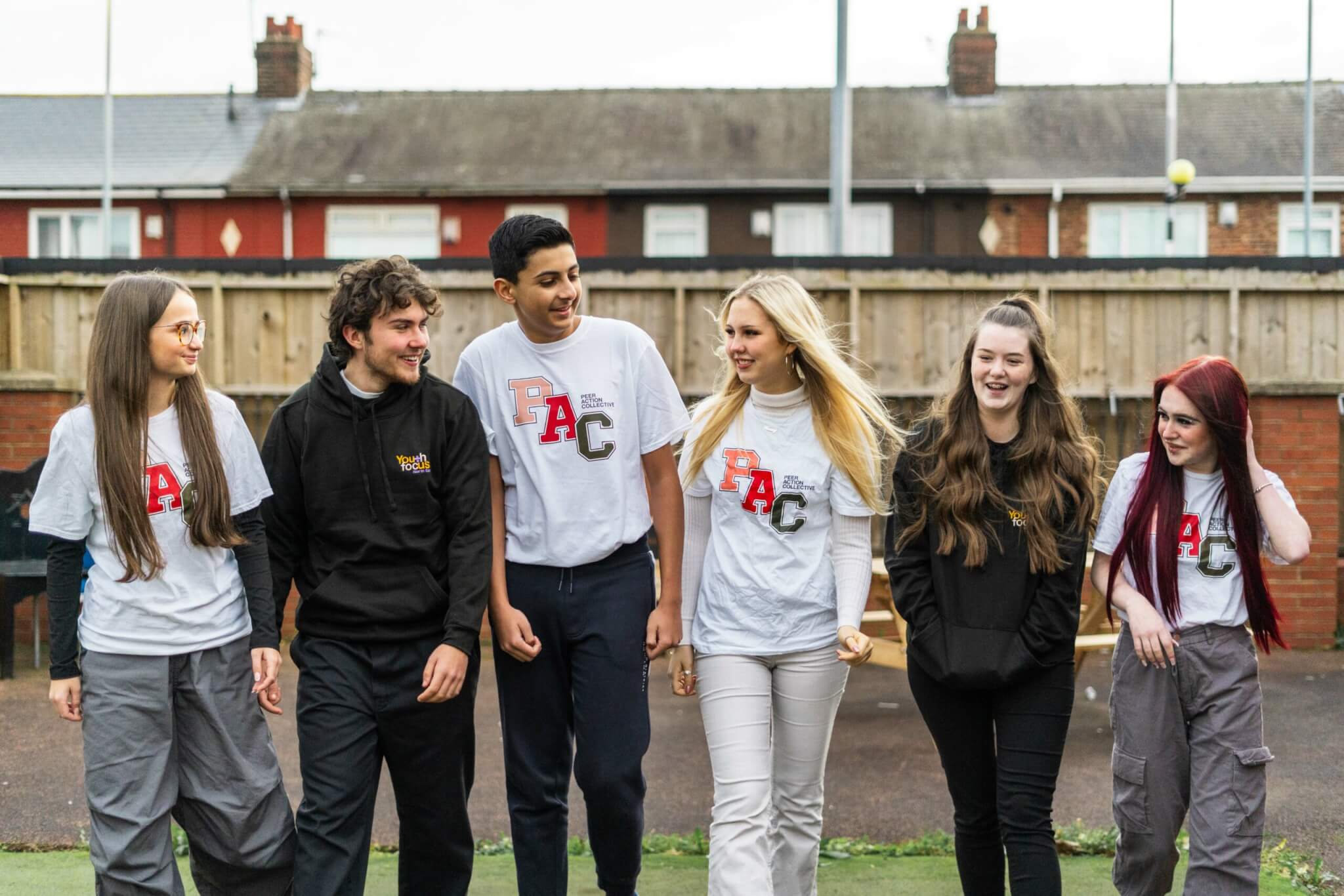
Time to talk day
Time to Talk Day (1 Feb) is the UK’s biggest conversation about mental health, which was an important subject for the Peer Action Collective, exploring the impacts of and solutions to youth violence.
Young people identified the importance of talking about mental health in the process of healing. Research with over 4,600 young people conducted in 2022 by Peer Researchers found that trusted, open communication was a priority for young people across England and Wales.
Communication is key
Young people were asked what they would do to prevent violence, and communication played a central role. Young people spoke about how experience of violence can bring trauma, feelings of isolation, or hopelessness:
“You’re much likely to as a young person to have some sort of mental health issues, and if you’re not getting the support that you need it’s much harder for you to kind of get out of that mindset and to actually do something to improve your life and not get involved in crime.“
Shamza, 18, Yorkshire
Many young people spoke about the multiple benefits of talking through their experiences to help move past difficulties:
“I feel like just communication between young people, why they feel like they need to pick up these knives, and things like that. I think if they have an outlet that they can speak to, they should do that they won’t get in trouble with, they’d be a lot more open in communication.”
Jake, 22, Yorkshire
“I’d try get people that are comfortable talking about what they’ve been through, if they’re comfortable, to talk about their experience and stuff, and how they went through it, and how they’re dealing with it if it’s still happening. People to speak out and say how they’re feeling and how the youth violence has affected them, what caused their mental health.“
Imogen, 15, Merseyside
Young people want access to safe places to express themselves without fear of consequence
While young people noted the importance of talking through their issues and experiences, they also spoke of barriers to doing so. Young people described feeling that their mental health was not taken seriously, culminating in frustration and resentment. Many described situations where their mental health was ignored or minimised by key adults in their life and explained that this could lead to increased volatility and lashing out at their peers.
“It was like it was just an immediate dismissal. Like the first thing that happened was I went in and just kind of spoke to her about my life and stuff like that and I thought oh ok. This is good. You know getting stuff off my chest and then after that it was just nothing, so it was like – oh what I’ve just poured my heart out for nothing like…“
Hannah, 19, Merseyside
“A lack of trust, because a lot of the times, you just pour your heart out to a stranger and tell them about the violence being committed to you and stuff like that. It’s a hard topic to talk about. Also, say if it’s a government-funded service, you’re not going to walk into a room and just admit that you’re committing crimes. You’re not just going to walk in and incriminate yourself to people who work for the government. Because then you’re thinking, “Well, am I going to get done for this?” Do you know what I mean?“
Victoria, 19, Merseyside
Supporting young people to talk
Opening up about difficult experiences is not easy, and young people need to know that they are speaking to someone they trust, and that will listen. But it can also be empowering, and lead to change. As Abi, 16, from London states, talking though issues is the first step:
“If you tell people what is happening at home, what is happening ahead, it can really enlighten people. It can really help them. I think that’s all we generally need. We just need to help people. We need to listen as well. When someone speaks, you should act on it. You don’t have to generally go flame, fire, torch, and everything, but just a general understanding, “I’m here for you. You can talk to me if you want. What do you want to change about the situation? I am here, I’m listening, I’m aware of this.” It’s just about the next step.”
On this Time to Talk Day, encourage others to think about how they can listen to young people affected by violence, and engage in the difficult conversations that can lead to change. Join the national conversation on social media using #TimeToTalk.
Funded by the Youth Endowment Fund, the #iwill Fund (a joint investment between The National Lottery Community Fund and the Department for Culture, Media and Sport) and the Co-op, the PAC is here to support young people to take the lead.
*All names changed for anonymity.




